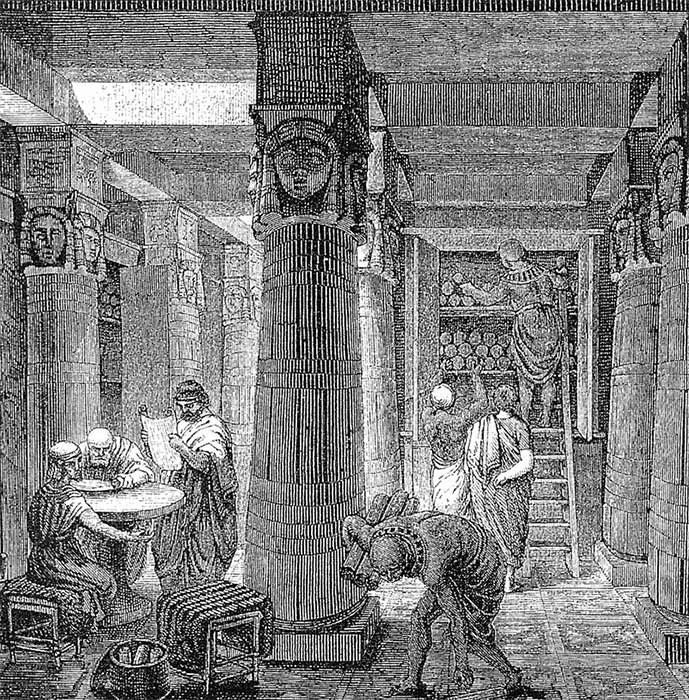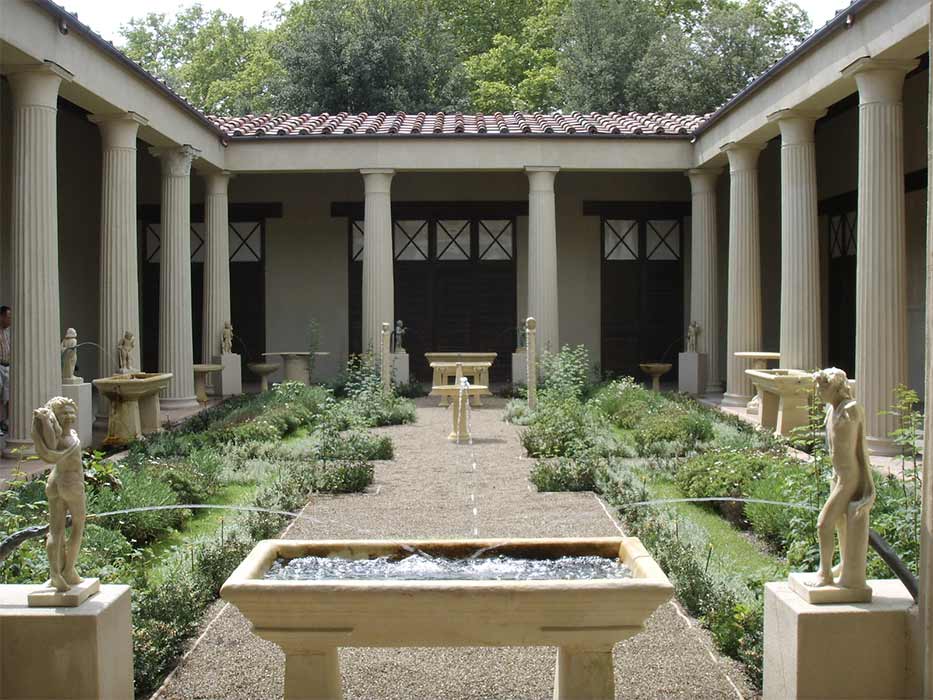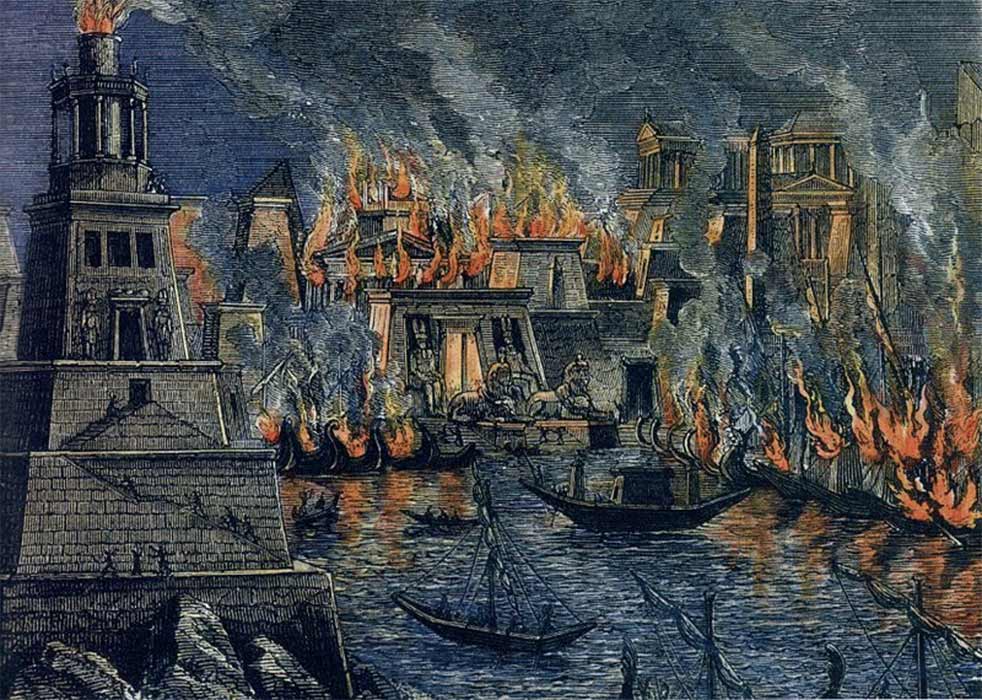
Libraries: The Legacies Of Ancient Bibliophiles
It can be argued of course, but a story has five important elements: the characters, the setting, the plot, the conflict and the resolution. These five essential narrative elements keep stories running smoothly and allow the action to develop in a logical way that readers can follow. However, an overlooked aspect of a story is where it is archived. While in prehistoric North American cultures and in Celtic European civilizations written language never superseded oral traditions, there are patches across the ancient world that not only developed writing, but also saw the construction of some of the most impressive structures of knowledge, wisdom and learning - libraries.

Artistic rendering of the Library of Alexandria by O. Von Corven, based partially on the archaeological evidence available at that time (19th-century) (Public Domain)
To study wisdom as it was taught in the classical works of ancient literature, is to introduce a degree of complexity and new insight into one’s contemporary view of reality. However, perhaps the greatest archaeological surprise of all is how so many books have survived the flames of time, and for this modern man can thank a long linage of bibliophiles who peppered the ancient world with grand halls of intellectual inquiry - libraries. Libraries were greatly a feature of larger cities across the ancient world with the most famous examples being those at Alexandria, Athens, Nineveh, Constantinople and Ephesus, and rather than serving local populations like they do today, old-world libraries were generally designed for visiting scholars to study and copy texts.

Reconstruction of the garden of the House of the Vettii in Pompeii shows the exotic garden of contemplation associated with what was one of the ancient world’s most important libraries. (sailko / CC BY-SA 3.0)
Today, the internet, and more recently Covid 19, have all but rendered libraries as ghost-shells from an era when touching objects handled by thousands of strangers was not prohibited. However, many of the ancient libraries in the Near East and Egypt were attached to sacred temple complexes, while in Greece and during the Roman empire, private collections were more common where orators and intellectuals gathered to debate ancient texts, papyrus and leather scrolls, wax- and clay tablets, often in lush garden settings.

The fire of Alexandria, woodcuts by Hermann Göll (1876) (Public Domain).
In 48 BC, one of the greatest tragedies of history occurred when Julius Caesar’s soldiers accidentally set fire to Alexandria’s harbor during a battle against the Egyptian ruler Ptolemy XIII, and the Library of Alexandra was incinerated. Yet, there are some lesser-known powerhouses of the mind, that are so often shadowed by the Library of Alexandra, who deserve their rightful place on the bookshelf of knowledge.




